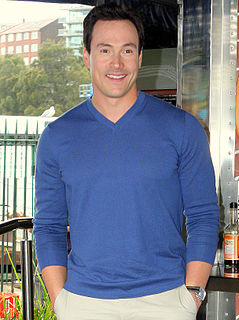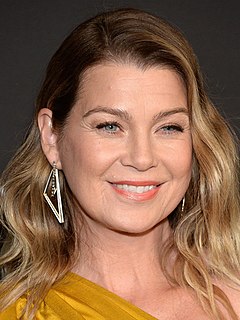A Quote by Geena Davis
My whole theory about why I couldn’t find any creators who realized they were leaving out female characters is because they were raised on the same ratio. I just heard someone the other day call it either ‘smurfing’ a movie, which is when there’s one female character, or ‘minioning’ a movie, which is when there’s no female characters.
Related Quotes
I think the superhero platform gives the female character, you know, a relate-ability for the male audience as well. So, I think that's why people are kinda gravitating towards female super hero characters, and also female characters in general as big parts of the film. So, that's great for us, female actors who want to do roles like that, which is really great.
To me, feminism in literature deals with the female characters being in some way central to the thematic concerns of the book, or that they are agents of change to some degree. In other words, the lens is focused deeply and intensely on the female characters and doesn't waver, which allows for a glimpse into the rich inner lives of the characters.
Any movie you see, if Tom Cruise is in an action movie or whatever it is, The Avengers, there's going to be a kick-ass female character. Usually one. And there's a term for this, but I don't know what it is. But someone's coined a term where there's one female character who's incredibly tough and strong and just as good as the guys at whatever it is they’re doing, and usually wearing black, skin-tight clothes, and [she] has no personality whatsoever, and is not funny.
I think the universal themes of "American Pie" are what make it attractive to everybody. How to people relate to these characters? It's because these five male characters in this movie wouldn't ordinarily be in the same friend group and they each have their own part to play in the whole thing. There's a character for everybody in this movie that they can relate to... that they either were or knew someone that was. To cover the range like that is pretty unique to our franchise.
At the end of the day I have many answers for it. It has to do with my mom, who was an extraordinary woman, and a great feminist. It has to do with the people in my life. It has to do with a lot of different things, but -- I don't know! Because I'm not just writing from the female characters for other people. I have a desire to see them in our culture -- that was not met for most of my childhood. Except occasionally by James Cameron. [From the 2011 San Diego Comic Con, in response to being asked why he writes strong female characters.]
It's a fact, the majority of films in Hollywood are from the male perspective. And the female characters, very rarely do they get to speak to another female character in a movie, and when they do it's usually about a guy, not anything else. So they're very male-centric, Hollywood films, in general. So I think it's incredible that Ned Benson, when I said I'd love to know where she goes, says okay, I'm going to write another film from the female perspective.
I would say any film can be called feminist that has female characters who have agency in their life, that are in charge of their fate or do important things or take up half the space. I would consider a film feminist, I don't care what it's about, but if the cast was gender balanced, where it would be just as likely that the boss or the best friend or whoever was female. It's really as simple as showing women being in charge of their destiny and giving female characters a voice.
I'm drawn to female characters, not all of them are strong characters. I think I'm drawn to female characters partly because they don't have as easy or as obvious a relationship to power in society, and so they suffer under social constraints or have to maneuver within them in ways men sometimes don't, or are unconscious about, or have certain liberties that are invisible to them.
I just don't feel like I've seen very many movies about 17-year-old girls where the question is not, 'Will she find the right guy' or 'Will he find her?' The question should be, 'Is she going to occupy her personhood?' Because I think we're very unused to seeing female characters, particularly young female characters, as people.





























